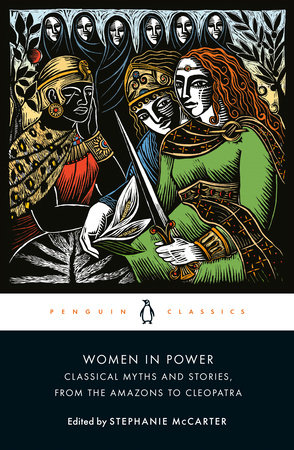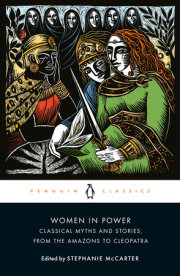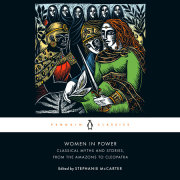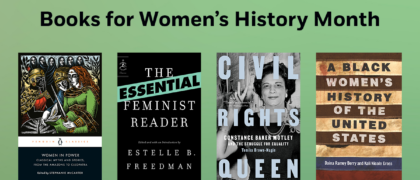Introduction by Stephanie McCarter
Suggestions for Further Reading
WOMEN IN POWER
Part One: The Woman-Run State
The Amazons
Strabo, Geography 11.5.1–4, translated from the Greek by Daniel Holmes
Diodorus Siculus, Library of History 2.45–46, translated from the Greek by Stephanie McCarter
Herodotus, Histories 4.110–118, translated from the Greek by Daniel Holmes
Diodorus Siculus, Library of History 4.16, translated from the Greek by Daniel Holmes
Plutarch, Theseus 26–28, translated from the Greek by Daniel Holmes
Quintus of Smyrna, Posthomerica 1.574–674, translated from the Greek by Stephanie McCarter
Quintus Curtius, History of Alexander 6.5.24–32, translated from the Latin by Stephanie McCarter
Female Revolution
Aristophanes, Assemblywomen, translated from the Greek by Stephanie McCarter
Part Two: Mythical and Legendary Queens
Semiramis, Queen of Babylon
Diodorus Siculus, Library of History 2.4–20 (selections), translated from the Greek by Daniel Holmes
Omphale, Queen of Lydia
Ovid, Heroides 9.53–118 (Deianira to Hercules), translated from the Latin by Stephanie McCarter
Ovid, Fasti 2.303–358, translated from the Latin by Stephanie McCarter
Hypsipyle, Queen of Lemnos
Apollonius of Rhodes, Argonautica 1.607–914, translated from the Greek by Aaron Poochigan
Statius, Thebaid 5.1–498, translated from the Latin by Stephanie McCarter
Dido, Queen of Carthage
Vergil, Aeneid Selections, translated from the Latin by Robert Fagles
Book One (1.314-756)
Book Four (all)
Book Six (6.450-476)
Ovid, Heroides 7, translated from the Latin by Erika Zimmermann Damer
Lavinia, Regent of Lavinium
Livy, The History of Rome 1.3, translated from the Latin by Stephanie McCarter
Part Three: Historical Queens
Artemisia I, Queen of Caria
Herodotus, Histories Selections (7.99, 8.67–69, 8.87–88, 8.100–103), translated from the Greek by Daniel Holmes
Salome Alexandra, Queen of Judea
Josephus Selections, translated from the Greek by Stephanie McCarter
Jewish War 1.107–119
Jewish Antiquities 13.428–432
Cleopatra VII, Queen of Egypt
Lucan, Civil War 10.53–171, translated from the Latin by Matthew Fox
Cassius Dio, Roman History 50.4–5, translated from the Greek by Daniel Holmes
Plutarch, Antony 25.3-27.5, translated from the Greek by Daniel Holmes[MOU1]
Pliny the Elder, Natural History 9.119–121, translated from the Latin by Stephanie McCarter
Vergil, Aeneid 8. 675–731, translated from the Latin by Stephanie McCarter
Horace, Odes 1.37, translated from the Latin by Stephanie McCarter
Propertius, Elegies 3.11, translated from the Latin by Stephanie McCarter
Cassius Dio, Roman History 51.14, translated from the Greek by Daniel Holmes
Amanirenas, Queen of Kush
Strabo, Geography 17.1.54, translated from the Greek by Daniel Holmes
Boudicca, Queen of the Iceni
Tacitus, Annals 15.31–35, translated from the Latin by Christopher M. McDonough and Paige Graf
Tacitus, Agricola 16.1–2, translated from the Latin by Stephanie McCarter
Cassius Dio, Roman History 62.3–7, translated from the Greek by Daniel Holmes
Zenobia, Regent of Palmyra
Historia Augusta, “The Thirty Pretenders” 30, translated from the Latin by Stephanie McCarter
Notes










